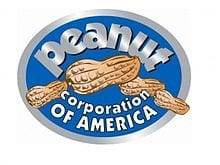Recently, a landmark case was decided in federal court in Georgia. The subject of the case? Peanut butter.
The Peanut Butter Case: United States of America vs. Stewart Parnell
From 2008-2009, there was an outbreak of salmonella infections in the U.S., an epidemic eventually linked to contaminated peanut butter. As many as 20,000 people may have been sickened, and 9 people were killed.
In January of 2009, a peanut butter company called PCA ceased production and shipments, and recalls were issued. The recalls were not only for peanut butter packaged by PCA. More than 200 companies recalled a total of 3,918 products which included PCA peanut butter or peanut paste as an ingredient. It is likely the most expensive recall over a single ingredient in U.S. history. 
Rodent droppings, dead insects, a leaking roof, and broken roasting equipment were found to be behind the contaminated peanut butter. Fraud was also rampant. PCA and its executives were so concerned with sales that they put, in writing, instructions to employees to ignore safety.
The case has been making its way through the court system, with both civil litigation and a criminal case. In July of this year, the U.S. Probation Office recommended a life sentence for Stewart Parnell, the former CEO of PCA, following his multiple felony conviction for “knowingly selling tainted peanut butter” that ended up killing nine people. In addition to imprisonment, PCA is facing a $11.2 million dollar fine. On September 21, 2015, Parnell was sentenced to 28 years in prison, the harshest penalty on record related to food-borne illness. Read more about the case here> and here>.
But what does this case have to do with tobacco?
Based on research ASH has undertaken, criminal charges could be filed against tobacco corporations and executives, just like the peanut butter corporation. ASH has been investigating this possibility, particularly concentrating on the charges of manslaughter and/or criminally negligent homicide, because of the deaths caused by tobacco use.
How is this case similar?
- Both tobacco corporations and PCA “knowingly distributed” a potentially toxic product
- Both PCA and tobacco corporations continued to manufacture and sell products they knew to be dangerous.
- People died from these products
- Although you could also call this a big difference – 9 people died from salmonella tainted peanut butter; the death count for tobacco might reach 1 billion in the 21st
- Some of the criminal charges would be similar; for example, conspiracy and fraud.
How is this case different?
- The PCA peanut butter was under FDA jurisdiction and therefore the criminal charges came under an FDA act (the Food Safety Modernization Act) instead of state or federal criminal law.
- The peanut butter case did not include charges for manslaughter, which tobacco executives could likely be charged with.
- As stated above, the damage done by tobacco is on a much broader scale.
Despite some differences, much about the peanut butter case rings true with tobacco as well. As Peter Hurley, a Portland, Oregon police officer and the father of a child who got Salmonella poisoning from Parnell peanut paste, told Congress: “If someone is convicted of a felony in the criminal justice system, they go to prison and are not allowed to vote. But, if you poison Americans via their food supply what are the consequences? You pay a fine and keep producing? Is this right? Is this what we as Americans want?” Read more here>.
It isn’t right, and Americans should demand justice in all cases where corporations that knowingly sell deadly products, especially for big tobacco.
If you are interested in reading more about potential criminal liability for tobacco executives, read more on ASH’s website here>.








